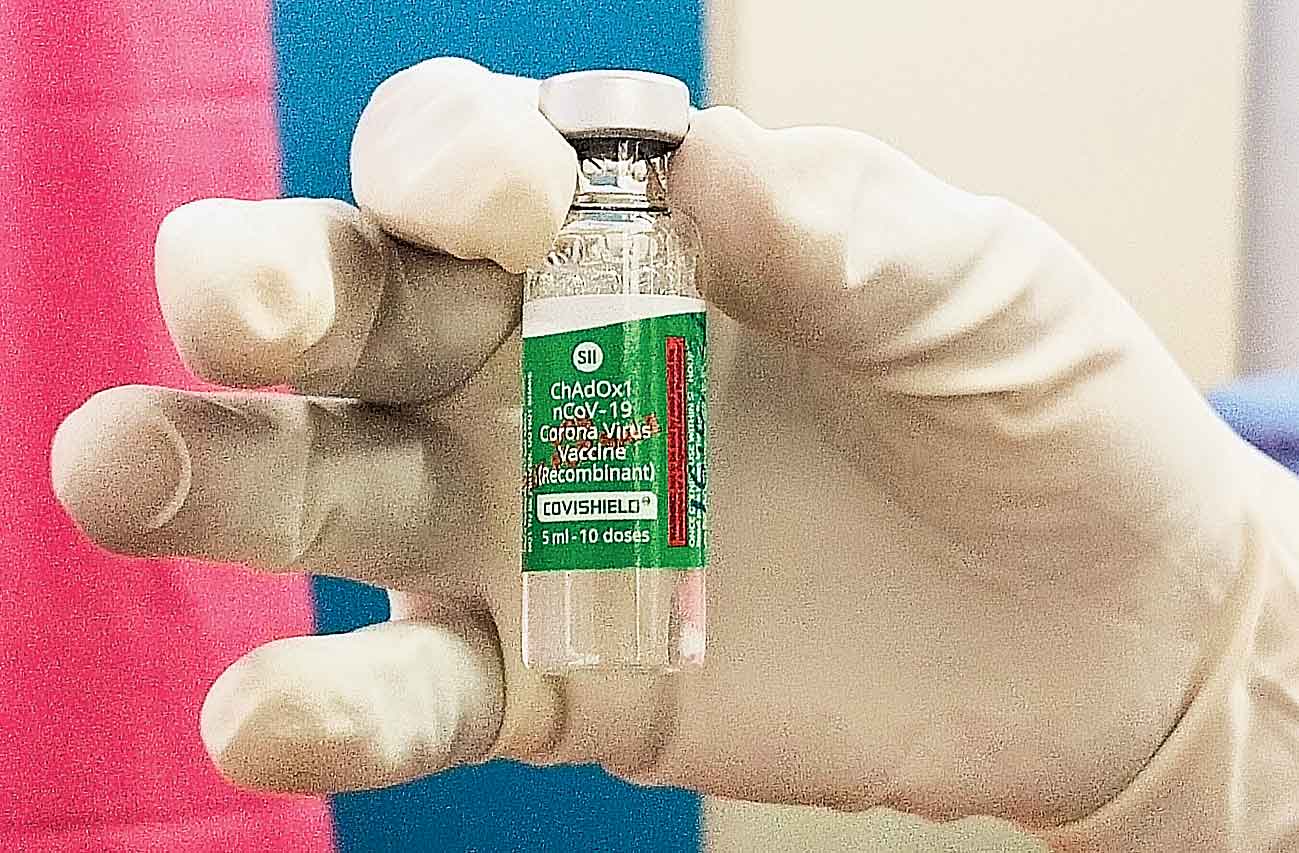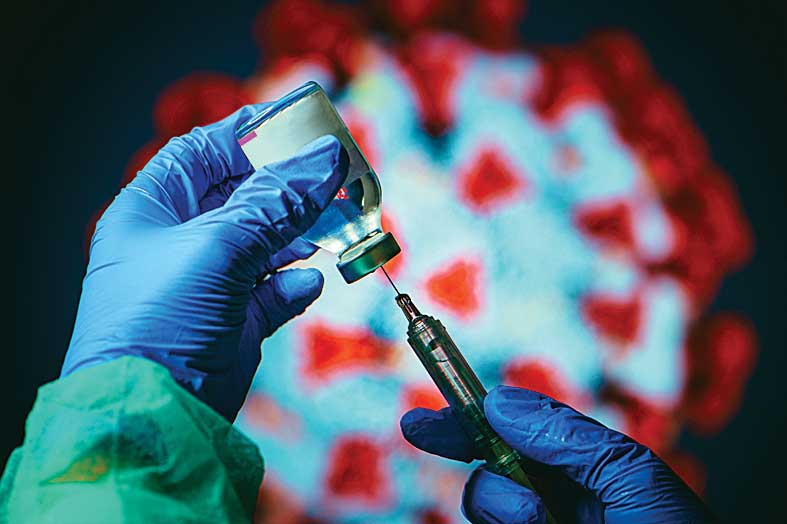India’s largest yet data analysis of the so-called breakthrough infections after inoculation with Covishield has found that 16 in every 1,000 fully vaccinated healthcare workers developed Covid-19 infections, about threefold the incidence observed in a US study after Pfizer or Moderna doses.
A team of doctors at the Postgraduate Institute of Medical Education and Research (PGIMER), Chandigarh, has documented 48 Covid-19 infections among 3,000 healthcare workers who had completed two weeks after both doses of Covishield before they tested Covid-positive.
“The incidence of breakthrough infection was 1.6 per cent, the median time from receipt of the second dose to the breakthrough infection was 29.5 days,” Venkatamaha Laksmi Pinnaka and his colleagues at PGIMER wrote in their report in The New England Journal of Medicine.
Medical researchers caution that the incidence of breakthrough infections among healthcare workers cannot be extrapolated to the general public because the former are more likely to be exposed to the infection and make up a vulnerable population group.
The PGIMER study, however, is being viewed as significant because it followed up over 7,170 healthcare workers who had received the first dose of the vaccine and 3,650 who had received the second dose since the start of the nationwide vaccination campaign that began in January.
The doctors found that 184 (2.6 per cent) among the 7,170 were infected after the first dose, and 72 (2 per cent) among the 3,650 were infected after the second dose, of whom 48 (1.6 per cent) were among the 3,000 who had completed two weeks after the second dose.
Earlier observations of breakthrough infections in India had involved smaller samples. A hospital in Delhi had, for instance, last month counted 15 breakthrough infections among 113 vaccinated healthcare workers. Experts say the larger the samples, the greater the statistical reliability of the results.
A study at the Rockefeller University in New York had detected breakthrough infections in two (0.05 per cent) of 417 healthcare workers who had been fully vaccinated with either the Pfizer or the Moderna vaccines at least two weeks earlier.
The study from India’s PGIMER and other efforts to gather additional data “provide important contributions regarding risk (of breakthrough infections)”, Robert Darnell and his colleagues at the Rockefeller University said, responding to the Chandigarh-based institute’s findings in the journal.
But doctors have cautioned that breakthrough infections do not distinguish between vaccine failure and infections after successful immune responses produced by the vaccination. It will be “especially important” to combine data on breakthrough infections with the course of the infection and disease outcomes in the patients, they said.
Studies on small samples of breakthrough infections in two Delhi hospitals have observed moderate and severe disease but no deaths. But anecdotal accounts have recorded deaths among healthcare workers after two doses.
Medical researchers believe there is an urgent need to expand studies on breakthrough infections in relation to coronavirus variants amid evidence that a widely circulating variant, designated B.1.617, appears likelier to cause post-vaccination infections than other circulating variants.
A joint study of 27 breakthrough infections by the National Centre for Disease Control and the Institute of Genomics and Integrative Biology in New Delhi had found that 19 had been infected by the B.1.617.2 variant and two had been infected by the B.1.617.1 variant.












